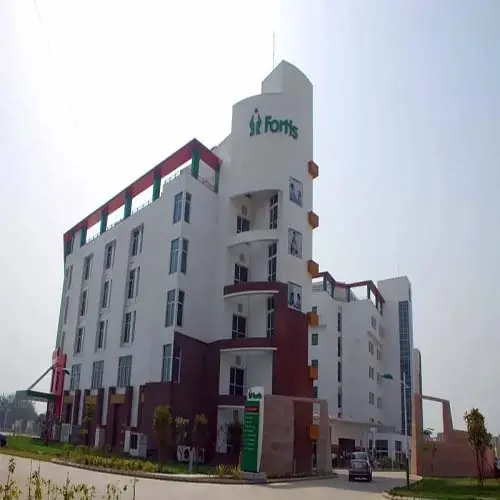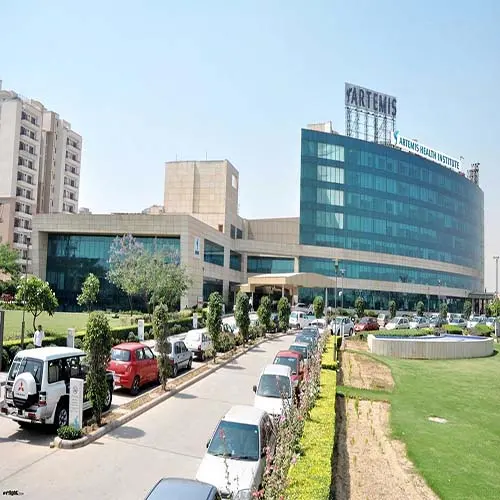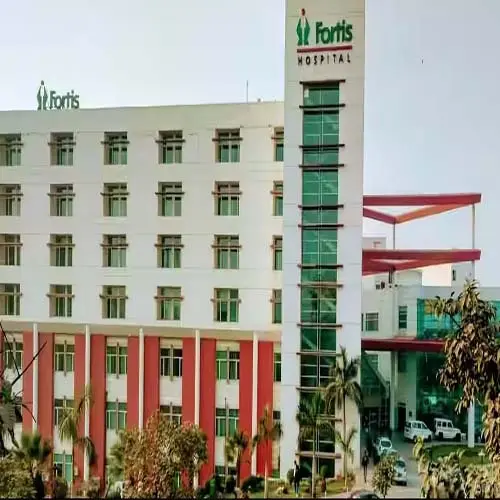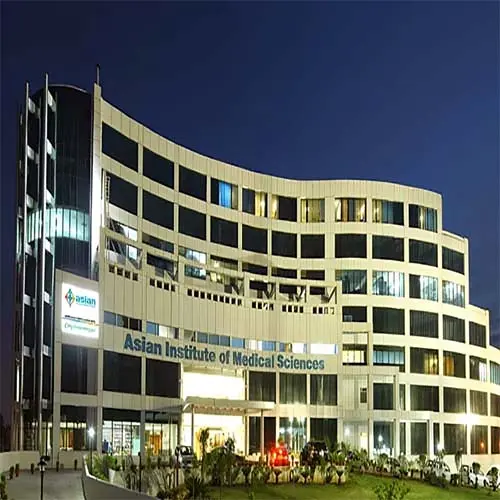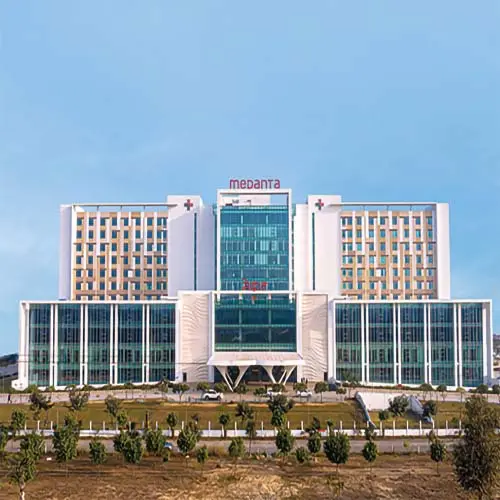Transcatheter Valve Replacement cost in India
Transcatheter valve replacement cost in India can range from $38,000 to $65,000 (approximately ₹31,70,000 to ₹55,00,000). India is from one of those countries who are offering advanced procedures such as TAVI (Transcatheter Aortic Valve Implantation) and TMVR (Transcatheter Mitral Valve Replacement) at a fraction of the cost compared to Western nations. The cost of TAVR generally ranges between $38,000 to $45,000, while TMVR costs between $55,000 to $65,000, depending on the patient’s condition, hospital facilities, and type of valve used.
Cost Range of Transcatheter Valve Replacement cost in India
This procedure is a minimally invasive alternative to open-heart surgery, recommended for patients with aortic stenosis or mitral valve disease who are at high risk for traditional surgery. Instead of opening the chest, doctors insert a catheter through a small incision, usually in the groin, and place a new valve inside the diseased one. This allows for faster recovery, less pain, and shorter hospital stays compared to open surgery.
India is home to highly experienced interventional cardiologists and cardiac surgeons trained in leading global centers. With advanced hospitals, latest cath labs, and excellent post-surgery care, international patients can expect safe, effective, and affordable treatment outcomes. This makes India a leading destination for complex valve replacement procedures.
Get a free cost estimate
Who is a candidate for TAVR / TMVR in India?
Transcatheter valve replacement (TVR) in India, including transcatheter aortic valve replacement (TAVR) and transcatheter mitral valve replacement (TMVR), is an option for patients with valvular heart disease who are at high risk for traditional open-heart valve replacement surgery. The criteria for candidacy can vary depending on individual circumstances, but generally include the following:
General Criteria
- Severe Symptomatic Valve Disease: Aortic stenosis (AS) or mitral regurgitation (MR) that is severe and causing symptoms such as shortness of breath, chest pain, or syncope.
- High or Prohibitive Surgical Risk: Patients who are considered high risk for traditional valve surgery due to factors such as advanced age, frailty, comorbid conditions (e.g., severe lung disease, renal insufficiency), or previous cardiac surgeries.
- Anatomical Suitability: Appropriate valve anatomy for the transcatheter approach. For TAVR, this includes adequate access routes (e.g., femoral arteries) and suitable aortic annulus size. For TMVR, this includes specific considerations of the mitral valve and surrounding structures.
Specific Criteria for TAVR
- Aortic Stenosis Severity: Severe aortic stenosis typically defined by an aortic valve area <1.0 cm² and/or mean gradient >40 mmHg, or a peak velocity >4.0 m/s.
- Symptomatic Status: Presence of symptoms attributable to aortic stenosis, such as dyspnea, angina, or syncope.
- Life Expectancy: Life expectancy of at least one year with a reasonable quality of life.
Specific Criteria for TMVR
- Mitral Regurgitation Severity: Severe mitral regurgitation, often defined by echocardiographic parameters including regurgitant volume, regurgitant fraction, and effective regurgitant orifice area.
- Symptomatic Status: Presence of symptoms such as heart failure symptoms (e.g., dyspnea, fatigue) that are not adequately managed by medical therapy.
- Anatomical Considerations: Suitable mitral valve anatomy for transcatheter intervention, considering factors such as leaflet calcification, annular dimensions, and the presence of mitral annular calcification (MAC).
Additional Considerations
- Heart Team Evaluation: A multidisciplinary team approach, often referred to as the "heart team," including cardiologists, cardiac surgeons, and other specialists, is essential to evaluate and determine the best treatment strategy for each patient.
- Patient Preference: Patient's values and preferences regarding treatment options, risks, and expected outcomes should be considered.
- Access Route: Adequate vascular access for device delivery, typically via the femoral artery for TAVR, but alternative routes (e.g., transapical, transaortic) may be considered if necessary.
- Previous Interventions: History of prior valve interventions and their outcomes may influence the decision for TVR.
Each case is unique, and a comprehensive evaluation by a heart team is essential to determine the appropriateness of TVR for an individual patient.
Types of Transcatheter Valve Replacement Cost
Here is an overview of the common types Transcatheter Valve Replacement along with their approximate cost range in USD:
Types of Transcatheter Valve Replacement | Cost Range in USD |
Transcatheter Aortic Valve Replacement Cost in India A minimally invasive procedure to replace a diseased aortic valve with a new valve using a catheter. | 3800 to 45000 |
Transcatheter Mitral Valve Replacement Cost in India A minimally invasive procedure to replace a diseased mitral valve with a new valve using a catheter. | 55000 to 65000 |
Get a free cost estimate
Transcatheter Valve Replacement Cost in India Inclusions
Routine patient investigations before surgery
Surgeon fee, OT charges, anesthesia
Pre-operative outpatient consultations
Routine drugs and consumables required during hospitalization
Pre-anesthesia check up and clearance
Hospital stay and meals as per the package
Cost of valve
Transcatheter Valve Replacement Cost in India Exclusions
Hotel stay, meals and flights
Extended hospital stay
Post-operative follow-ups and medical management
Post-operative dressing and nurse visits
Any blood products
Complications management
Treatment for any other underlying medical conditions
Any complex investigations
Other Factors Affecting Transcatheter Valve Replacement Cost in India
Choice of location, doctor and hospital
Pre-existing medical history
Type of surgery and approach
Overall patient status and condition at the time of surgery
Diagnostic Tests Done Before Transcatheter Valve Replacement
Types of Test | Cost Range in USD |
Blood Tests: These include the basic blood investigations for the patient to check for overall functioning for vital organs. | 50 to 70 |
CT Scan and ECG: CT scan provides detailed imaging of the heart, aorta, and vascular access routes, while ECG helps with asessment of heart rhythm and electrical activity. | 300 to 400 |
Angiography: This includes assessment of existing coronary artery disease. | 300 - 350 |
Pulmonary Assessment: Chest X-ray and pulmonary function test is done to assess the health of the lungs. | 50 - 80 |
Why is India preferred as one of the best countries for heart surgery?
India is preferred for heart surgery due to its combination of highly skilled surgeons, state-of-the-art facilities, and cost-effectiveness. Indian hospitals perform over 100,000 cardiac surgeries annually, maintaining success rates on par with global standards. The cost of heart surgery in India is typically 60-90% lower than in Western countries, attracting patients worldwide. Additionally, many Indian surgeons are internationally trained, and hospitals often have accreditation from global organizations like JCI, ensuring high-quality care.
Cost Comparison for Transcather Valve Replacement Price in India with Other Countries
Country | Cost in USD |
India | 38000 to 65000 |
Turkey | 45000 to 75000 |
UAE | NA |
USA | 150,000 to 195,000 |
Best Transcather Valve Replacement Hospitals in India
FAQs
TAVR (also called TAVI) is a minimally invasive heart procedure used to replace a damaged aortic valve without open-heart surgery. Doctors insert a new valve through a thin tube (catheter) placed in the leg or chest artery.
TAVR is usually recommended for patients with severe aortic stenosis (narrowing of the heart valve) who:
- Are at high or medium risk for open-heart surgery.
- Have symptoms such as chest pain, shortness of breath, dizziness, or fainting.
- Want a less invasive option with faster recovery.
The procedure usually takes 1–2 hours. Most patients are kept under observation for a few days.
TAVR has a success rate of over 90% in India. Most patients experience major relief from symptoms and can return to normal activities after recovery.
Yes. Most patients return to daily activities and feel more energetic. With proper medicines, diet, and regular check-ups, you can enjoy a long and healthy life after TAVR.

